Water Rower vs Magnetic Rower: How to Choose?
Author:
Unlock your full potential by engaging with our experts and community! Have questions about your fitness journey or looking for expert advice on weightlifting techniques? Don’t hesitate — leave a comment below and Ihor Shymechko will provide a personalized answer and insights to help you reach your goals.
Torokhtiy is reader-supported. Some links are affiliate links, and we may earn a commission at no extra cost to you. See our disclosure page for details.
So, you’ve chosen rowing as part of your workout, and now comes the dilemma – water rower vs magnetic rower.
I will make an assumption and say you’ve most likely been researching this topic for a while. That’s a good thing – I would do it, too. You want all the information available so you can make your decision. But… You may also be overwhelmed with all you’ve read. You may have even stumbled upon an ad or two, so now you can feel like you know less than you did before you even started.
If you want something like “This is better” or “Choose this over that” then that’s not what you’ll find here. And honestly, I would have to advise you to steer clear of biased opinions.
I won’t take up too much of your time because I’ll explain (in a really straightforward way) the pros and cons of each, and I’ll even throw in a recommendation or two.
Water rower vs magnetic rower – what’s the difference? The main difference between a water rower and a magnetic rower lies in the resistance mechanism. A water rower uses water to create resistance, offering a realistic rowing feel. A magnetic rower uses magnetic force for resistance, providing a quiet operation.
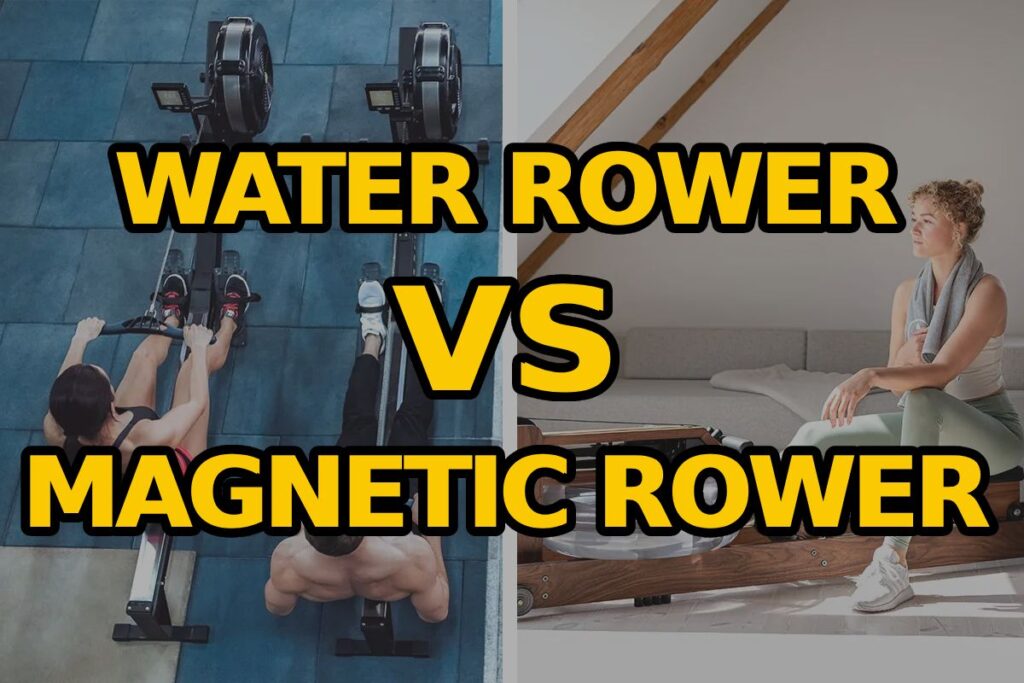
What Is a Water Rower?
As the name would suggest, a water rower uses water as its source of resistance. It has a tank (filled with water), connected to the rowing handle and a seat. When you start rowing, the paddles in the tank spin and create resistance; this mimics the feeling of rowing on actual water.
They’re great for just about anyone – from beginners to professionals. Rowers, in general, are good for people with joint issues, the elderly, or those going through rehabilitation. You can easily control the level of intensity and adjust it to be anything from a soothing warm-up to a butt-kicking workout.
What Is a Magnetic Rower?
It would be no surprise anyone, but a magnetic rower uses magnets as its source of resistance. Unlike other rowers that use water or air, a magnetic rower has a magnetic brake system that creates resistance when you row. The resistance can, of course, be easily adjusted through a control panel.
If you ever try a magnetic rower, the first thing you notice is how incredibly quiet it is. That’s why lots of people prefer magnetic rowers. Unless you live completely alone and have little to no neighbors, it’s a big deal. You don’t want to disturb other people with your workout, and a magnetic rower definitely won’t bother anyone.
Like any other rower, the workout you get with it engages your entire body. Also, that kind of workout is low-impact. The adjustable resistance makes magnetic rowers suitable for everyone.
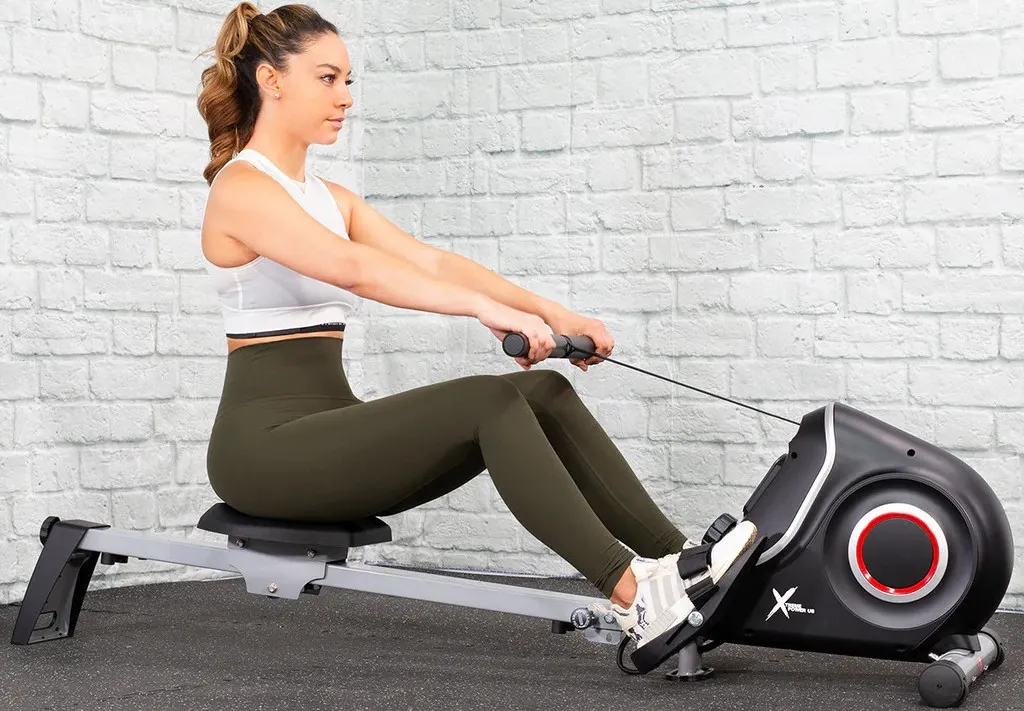
Water Rowers and Magnetic Rowers: 7 Differences
Now that we’ve gone over what each of them are, let’s put them side by side to compare both types.
| Rower Type | Resistance | Noise | Maintenance | Feeling | Space | Price |
|---|---|---|---|---|---|---|
| Water Rower | Water | Water swooshing sounds | Regular maintenance | Realistic – mimics rowing on water | Usually large and heavy | Can be pricey |
| Magnetic Rower | Magnets | Silent | Minimal maintenance | No feeling of rowing on actual water | More compact and lightweight | More affordable |
1. Resistance
Water rowers have a tank that gets filled with water. The paddles and the water create resistance – the harder you row, the more resistance you’ll feel.
Magnetic rowers, on the other hand, use magnets as a source of resistance, and you can adjust it through the control panel.
2. Noise
Water rowers create soothing splashing sounds as you row. Some people may be bothered with it (if they don’t like any noises or just don’t particularly like water noises), but for most, it’s super-relaxing and calming.
Magnetic rowers are almost completely silent; you can barely hear them. That makes them great for home use, especially if you share your living area with other people or live in an apartment.
3. Maintenance
You’ll be doing quite a bit of work around a water rower because it needs regular maintenance. They need their water changed, and also, you need to add purification tablets in the tank (periodically).
On the other hand, magnetic rowers need minimal maintenance. Magnetic vs water rower – the magnetic is a clear winner here.
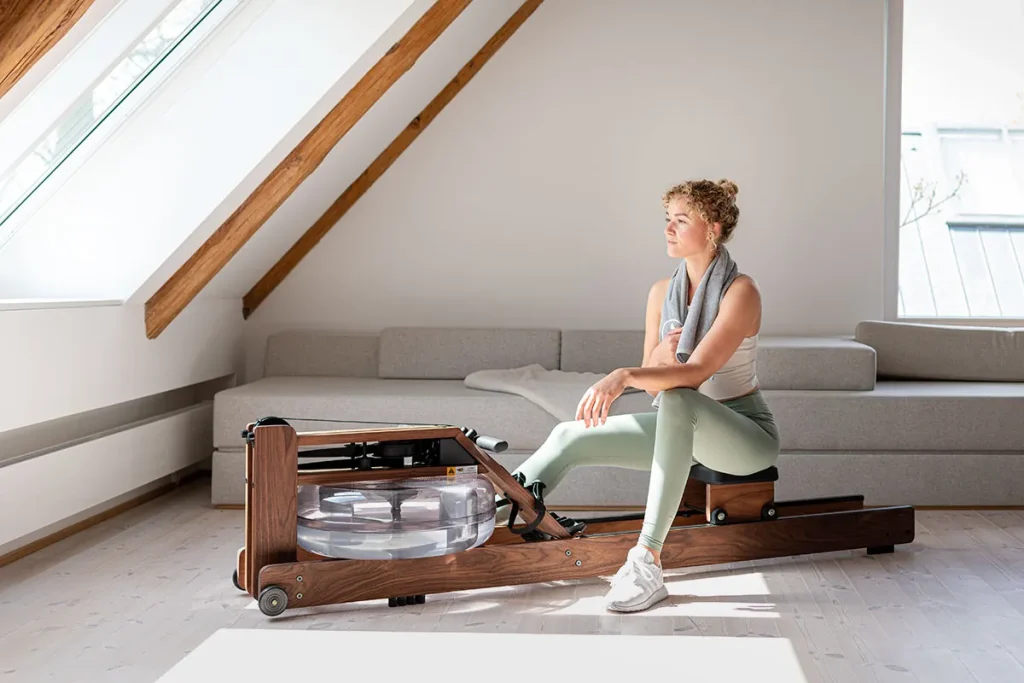
4. Feeling
If you want to feel like you’re rowing on actual water, nothing compares to a water rower. The resistance it creates is realistic, and nothing can match that splashing sound (have I already mentioned that I really like the sounds of water?).
The magnetic rower is far from that. The resistance is controlled and precise, and it’s nothing like the resistance you’ll get when rowing on water.
5. Space
If space (and portability) is an issue, a water rower won’t be the best fit. They’re usually large, and the water tank can make them quite heavy.
Magnetic rowers are a lot more compact and lightweight, so not only is it easier to find a place for them, but they’re also easier to move.
6. Portability
Because water rowers use water in a tank to create resistance, they tend to be heavy – much heavier than their magnetic counterparts. This also makes them much harder to move. Even if the rowers have transportation wheels, if you’re moving a water rower, you’ll definitely have quite the challenge repositioning it around the gym. Magnetic rowers are much lighter in comparison and do not suffer this issue.
7. Price
The high-quality wood frames, construction and materials make water rowers more expensive than magnetic rowers. Magnetic rowers are a lot nicer to your wallet.
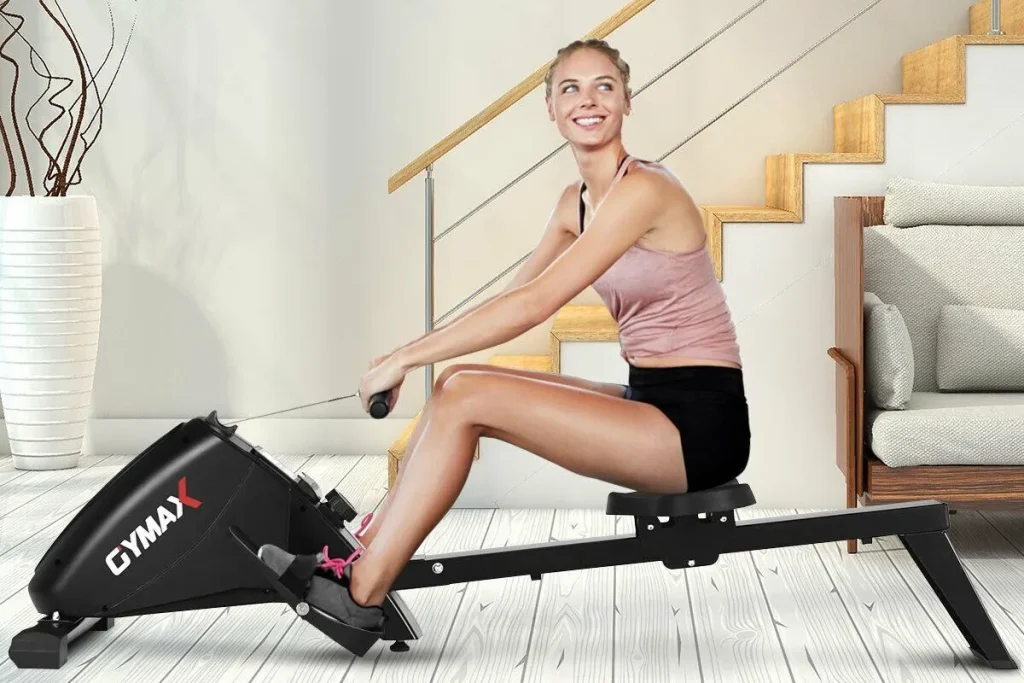
A Summary of the Water Rower and the Magnetic Rower
Pros and Cons of a Water Rower
Pros:
- Provides a realistic rowing experience – it has ability to closely simulate an actual rowing experience.
- Smooth and self-adjustable resistance, just like it would be on actual water (the harder you paddle – the higher the resistance).
- Generates realistic water sounds which many users find relaxing and soothing.
Cons:
- The size of rower – it’s big, it’s heavy, and it’s difficult to move around.
- More expensive than magnetic rowers because of the materials used in construction.
- Requires more regular maintenance such as regular tank cleaning, water changing, and (depending on the water used) special purifying tablets to prevent algae growth.
Pros and Cons of a Magnetic Rower
Pros:
- Magnetic rowers operate silently, making them ideal for apartment living.
- Magnetic rowers are compact and easily portable because of their lighter and less-bulky construction compared to water rovers.
- Magnetic rowers are usually more budget-friendly than their water siblings.
Cons:
- Less realistic rowing experience that might not seem as motivating and engaging as rowing with a water rower.
- Magnetic rowers come with fixed pre-set resistance levels, which place a limitation on resistance range/adjustability.
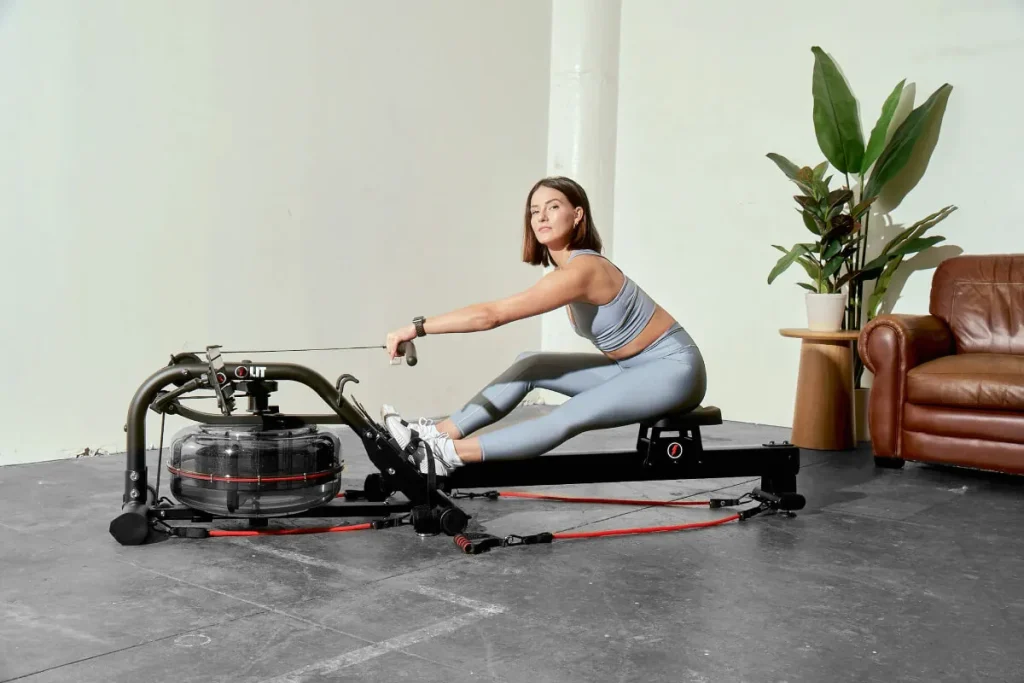
A Water Rower or a Magnetic Rower: When to Use Each
The whole purpose of a water rower (apart from giving a good workout) is to mimic the feeling of rowing on water. The splashing sounds, the way the resistance works… Everything revolves around the experience of being as close as possible to actual rowing on water.
Another great thing about the resistance is that you don’t need to adjust it manually – it adjusts itself based on how hard you row. It’s also very consistent and smooth.
If that splashing sound is not that big of a deal for you, you may as well save some money and go for a magnetic rower. Not only is it more affordable, but it’s also quiet and saves space. Many of them have built-in wheels, so you can move them around without breaking a sweat, and they’re usually foldable, too. In short – they’re super convenient if you need a machine that you can easily store away and move.
Water Rower We Recommend – Sunny Obsidian Surge Water Rowing Machine Rower
This water rower is top-quality, and will make your workouts as challenging as you want them to be. You can go for some light rowing and enjoy the splashing sounds of water, or you can go for something super intense.
Unlike a lot of other water rowers, this one is surprisingly easy to move because it has wheels so you can roll it around. The digital monitor shows all the essential information you need (like time, strokes, calories, HR, etc.).
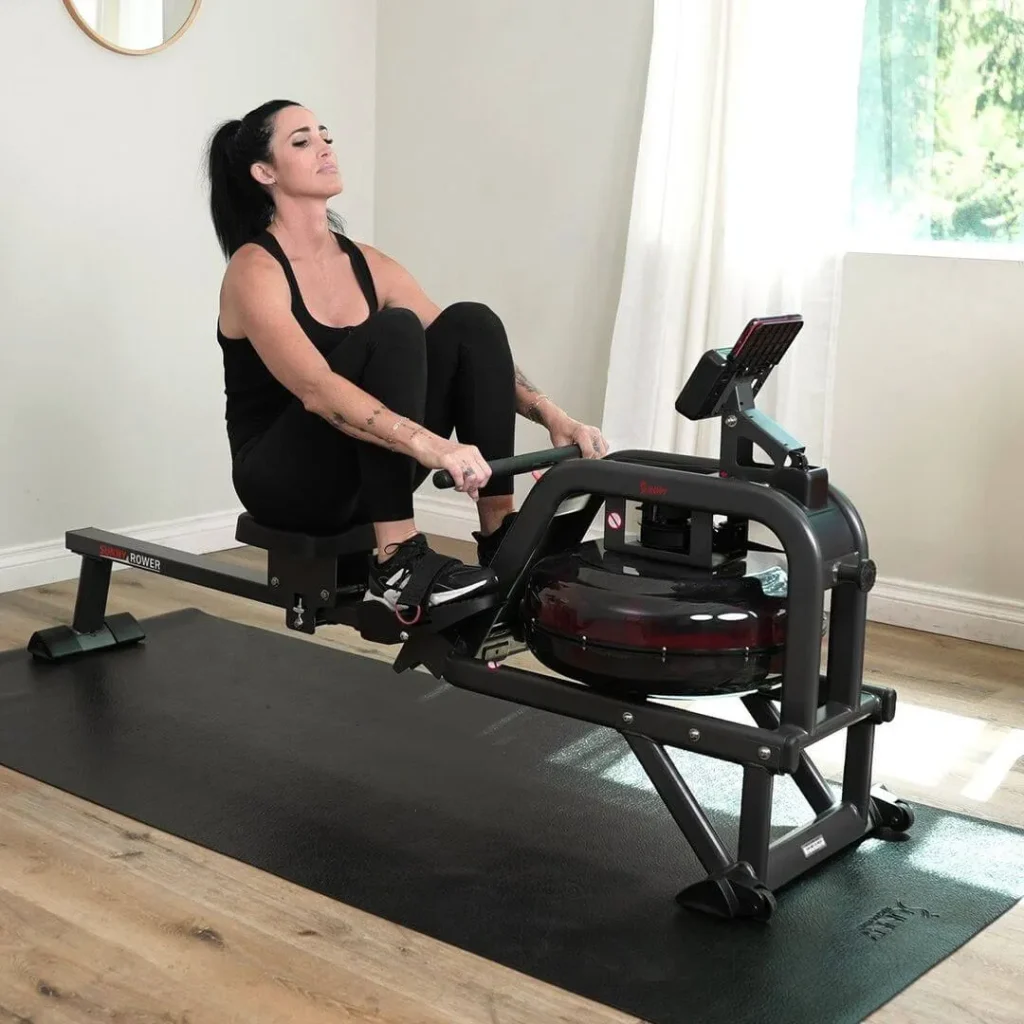
Another surprising thing – the weight. It’s not as heavy as you might expect, thanks to its lightweight steel construction. It’s sturdy enough to be durable, yet light enough not to weigh a crazy amount. Floor stabilizers keep it secure, and the non-slip pedals make sure your feet will not slide around.
It is a bit bulky, so you’ll most likely be storing it somewhere after your workout – which is actually easy to do because you can keep it upright. Good job, Sunny!
Positives:
- Lightweight
- Has floor stabilizers
- Can be stored in an upright position
- Non-slip pedals
Could be better:
- Bulky
- No advanced features available
Magnetic Rower We Recommend – Sunny Space Saving Rowing Machine Magnetic Rower
This one comes at a fantastic price that does not sacrifice quality to be affordable.
It sits 13 inches above the floor, so it’s easy to get on and off. You can place your tablet on it and watch Netflix as you work out, and 16 levels of resistance are sure to keep you busy for a long time. Even if you’re advanced, this will be challenging enough.
The seat is nicely cushioned, so you’ll be super comfortable while working out, and the handlebars prevent any calluses because they have a foam overlay.
Of course, it comes with wheels and floor stabilizers, because we don’t want rowers that are hard to move or that wobble while in use. This is a good one!
Positives:
- Fantastic price
- 16 levels of resistance
- Can be stored in an upright position
- Nicely padded seat
Could be better:
- The information on the monitor is hard to read in anything other than low lighting
- A bit difficult to assemble
FAQ
Is Water or Magnetic Rower Better?
There’s really no definite answer here, because it depends on you. A water rower gives that realistic feel of rowing on water along with continuous resistance. A magnetic rower, on the other hand, is silent, more affordable, and compact. Both have a lot of cardiovascular benefits, burn calories, and, like all workouts, are great for your mental health and quality of life.
Are Water Rowers Better Than Regular Rowers?
Again, no yes-or-no answer here. It depends on what’s important to you, but whichever you choose, you can be sure you’ll get a low-impact workout that’s gentle to your joints.
Conclusion
Paddle after paddle, we’ve rowed all the way to the end! If you were expecting to find a definite recommendation here on which type of rower to choose, I hope you’re not disappointed. Whatever you choose, magnetic rower or water rower, know that rowing comes with a lot of benefits – what type of rower you choose depends on those teensy differences that ultimately come down to your preferences.
I’d like to hear your opinions on this! What do you think – are water rowing machines better, or would you go for magnetic? What is the biggest difference between a water rower and a magnetic rower that would make you choose one over the other? Do you even like rowing, and why?
Leave anything you can think of in the comments.
Also read:
- Rowing Machine vs Treadmill
- Air vs Magnetic Rower
- Rowing Machine vs Stationary Bike
- How Many Calories Does Rowing Burn
References:
- Effects of Rowing Exercise on Prevention of Metabolic Syndrome and Sarcopenia for Senior People // ResearchGate: https://www.researchgate.net/publication/272991551_Effects_of_Rowing_Exercise_on_Prevention_of_Metabolic_Syndrome_and_Sarcopenia_for_Senior_People
- Bbasal physical fitness and muscle function in relation to muscle balance pattern using rowing machines // NCBI: https://pubmed.ncbi.nlm.nih.gov/25226943/
- The physiology of rowing with perspective on training and health // NCBI: https://pubmed.ncbi.nlm.nih.gov/32627051/
- Stress-reducing effect of listening to water sounds depends on somatic complaints // NCBI: https://www.ncbi.nlm.nih.gov/pmc/articles/PMC5842016/
- Training-specific changes in cardiac structure and function // NCBI: https://pubmed.ncbi.nlm.nih.gov/18096751/
Why Trust Us?
With over 20 years in Olympic weightlifting, strength training, nutrition coaching, and general fitness our team does its best to provide the audience with ultimate support and meet the needs and requirements of advanced athletes and professional lifters, as well as people who strive to open new opportunities and develop their physical capabilities with us.
By trusting the recommendations of our certified experts in coaching, nutrition, and sports training programming, as well as scientific consultants, and physiotherapists, we provide you with thorough, well-considered, and scientifically proven content. All the information given in the articles concerning workout programming, separate exercises, and athletic performance, in general, is based on verified data.
The product testing process is described in more detail here.
Author: Ihor Shymechko
Pro Olympic Weightlifter, Coach
Best Results: Snatch – 208 kg,
C&J – 240 kg
Ihor has been a professional weightlifter since 1996, boasting over two decades of competition experience. His notable achievements include clinching the European Championship in 2009 and securing a silver medal in the 105kg division at the Senior World Championships in 2011. Ihor represented his country in the 2008, 2012, and 2016 Summer Olympics. After retiring from competitive weightlifting, he transitioned to coaching, leveraging his vast experience to guide athletes who now compete on both national and international stages.



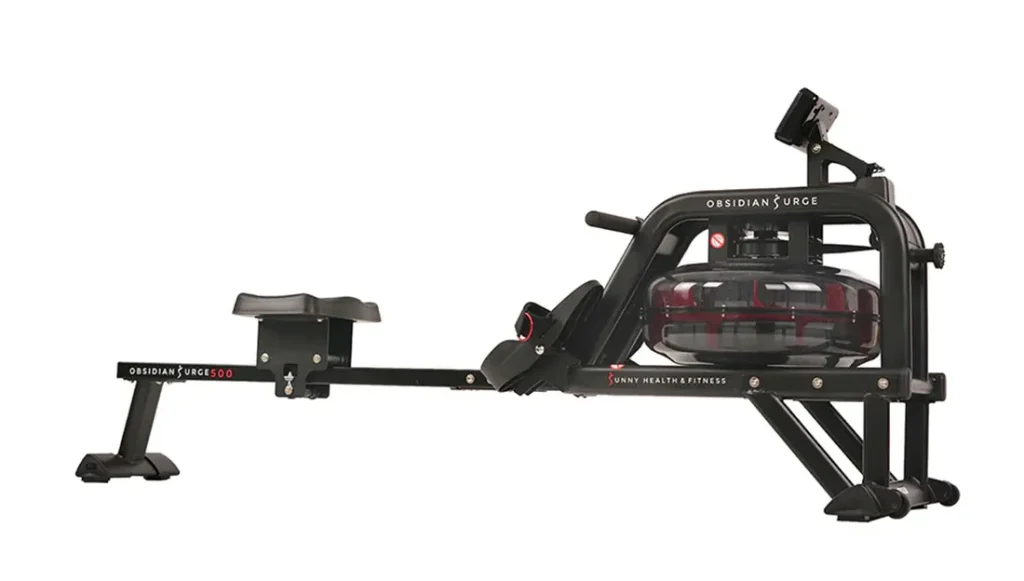
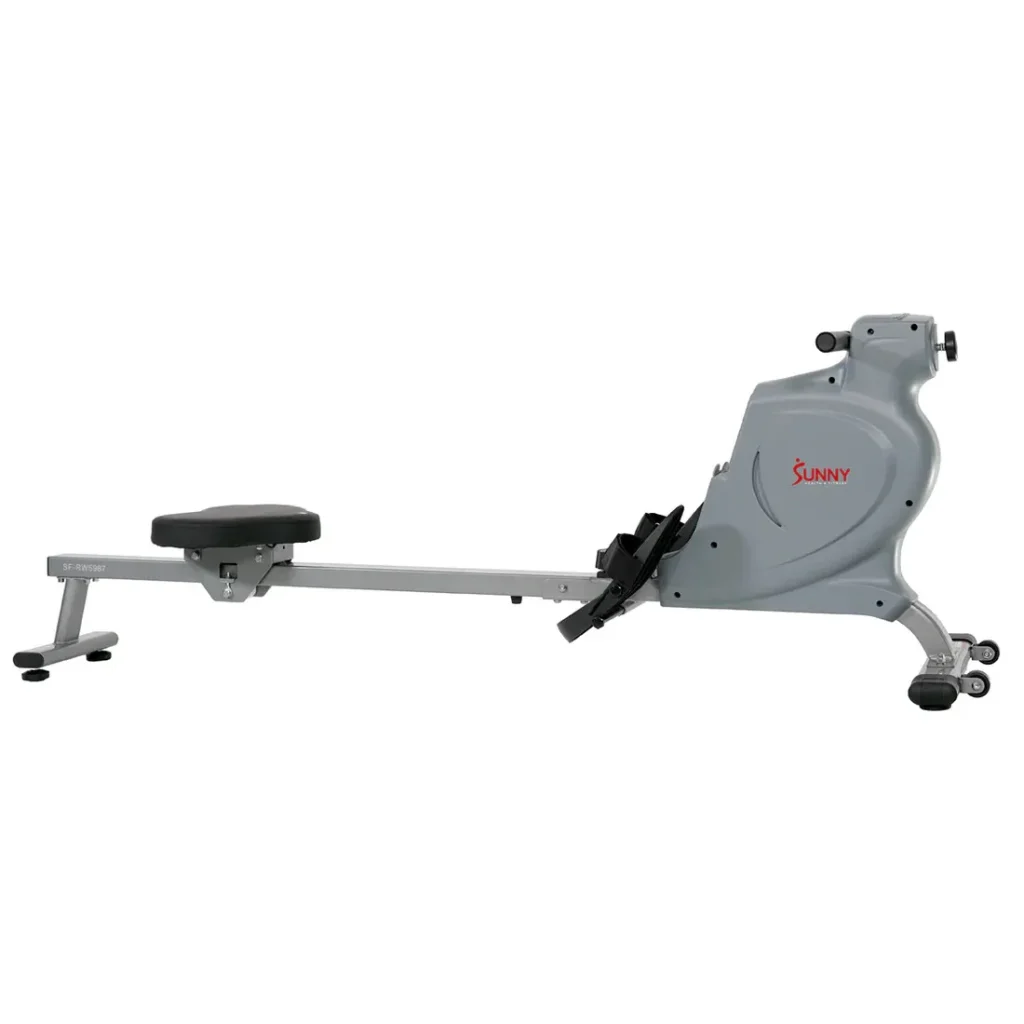
Still have questions after reading our article? Unlock your full potential by engaging with our experts and community! Don’t hesitate — leave a comment below and Ihor Shymechko will provide a personalized answer and insights to help you reach your goals.